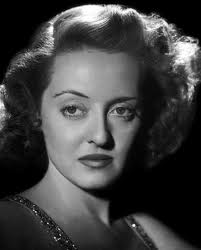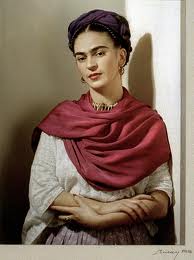
“With all my heart,” Bette Davis said in her character’s moment of luminous doom, “I still love the man I killed.”
Yes, he thought as he watched the final, fatal moments of The Letter at the Stanford Theater, which ran old movies in downtown Palo Alto, you can’t do evil better than Bette.
As the house lights came up and the old-time movie curtain came down, he rose from his seat and headed toward the exit and home. He came here often, and he usually came alone.
He liked to see old movies on the big screen. He liked them on the TV screen too. He even liked them on YouTube on his computer. He liked the sharp dialogue and fast-paced editing. He liked the bright, quirky actors and actresses who appeared in the same kinds of roles again and again. He especially liked the other-worldliness of black and white: how light and shadow danced together for ninety minutes to tell him about good and evil or ignorance and revelation or hope and despair. And he loved the countless shades of gray that flowed like musical harmonies between the darkest black and the brightest white.
For most of his life, he liked just about all kinds of old movies from Westerns to swashbucklers to screwball comedies. His appreciation came from his parents, who were from that era and enjoyed the movies in many of the ways he did. He brought them to the Stanford often before they died, and they were thrilled.
Now, in the four years since he and Judy divorced, he found himself being pulled more and more toward one kind of old movie, the film noirs of the 1940s and 1950s. It wasn’t a calculated choice. It was more a matter of drifting, like the way Fred MacMurray just wound up in Barbara Stanwyck’s arms in Double Indemnity or Robert Mitchum found himself up to his neck in trouble with Jane Greer in Out of the Past.
He and Judy had been married for twenty-six years, which, he sometimes thought, was twenty-five years too long. Their two children were the perfect distraction, and, as soon as they went off to college, their marriage collapsed like a punctured soufflé. Then, after a long and expensive divorce, he was fifty-five and alone, living in a small condo with his TV and growing collection of old movies.
After the first few months, friends began to introduce him to women they knew, and he joined an online singles community. But the dates with these women were usually awkward, and the awkwardness made him feel even more alone. His friends were very nice, but he needed more in his life. Work was manageable but rarely fun. His children were living in Dallas and New York, busy with their careers, and hard to reach on the phone. Since his parents died, his own siblings saw less of each other too. Everything was dissolving into something else. But what could it be?
Then he stumbled onto noir. One night, after another awkward date, he noticed that Gun Crazy, a pulpy noir he hadn’t seen in years, was on TV. He started watching and couldn’t stop. He was seeing it, he kept thinking, with brand new eyes. It was so bleak and dark and at the same time comforting. He even laughed out loud when one character, a carnival clown, told the young hero: “Some guys are born smart about women, and some guys are born dumb. You were born dumb.” Yes, these movies were saying something to him.
As he traveled deeper into the noir world, he was drawn more and more to the impending doom that oozed out of every frame of film that flashed before him: the dark and deadly big-city streets; the sexy, dangerous women; the aimless, ominous cigarette smoke; the disturbing, tilted camera angles that kept him constantly on edge. He even loved discovering the titles of more obscure movies he was learning about for the first time--Raw Deal, Brute Force, The Set-Up, Nightmare Alley, Cry of the City, In a Lonely Place, Born to Kill, The Damned Don’t Cry, and The Devil Thumbs a Ride. He loved the whole self-indulgent wallow. And, for the moment, he needed it.
Someday, maybe, the next part of his life would emerge from this fuzzy gray dissolve he had settled into. Someday, maybe, he would happily return to the plucky, up-with-life movies of the 1930s. But for now this would be his world. LS
Yes, he thought as he watched the final, fatal moments of The Letter at the Stanford Theater, which ran old movies in downtown Palo Alto, you can’t do evil better than Bette.
As the house lights came up and the old-time movie curtain came down, he rose from his seat and headed toward the exit and home. He came here often, and he usually came alone.
He liked to see old movies on the big screen. He liked them on the TV screen too. He even liked them on YouTube on his computer. He liked the sharp dialogue and fast-paced editing. He liked the bright, quirky actors and actresses who appeared in the same kinds of roles again and again. He especially liked the other-worldliness of black and white: how light and shadow danced together for ninety minutes to tell him about good and evil or ignorance and revelation or hope and despair. And he loved the countless shades of gray that flowed like musical harmonies between the darkest black and the brightest white.
For most of his life, he liked just about all kinds of old movies from Westerns to swashbucklers to screwball comedies. His appreciation came from his parents, who were from that era and enjoyed the movies in many of the ways he did. He brought them to the Stanford often before they died, and they were thrilled.
Now, in the four years since he and Judy divorced, he found himself being pulled more and more toward one kind of old movie, the film noirs of the 1940s and 1950s. It wasn’t a calculated choice. It was more a matter of drifting, like the way Fred MacMurray just wound up in Barbara Stanwyck’s arms in Double Indemnity or Robert Mitchum found himself up to his neck in trouble with Jane Greer in Out of the Past.
He and Judy had been married for twenty-six years, which, he sometimes thought, was twenty-five years too long. Their two children were the perfect distraction, and, as soon as they went off to college, their marriage collapsed like a punctured soufflé. Then, after a long and expensive divorce, he was fifty-five and alone, living in a small condo with his TV and growing collection of old movies.
After the first few months, friends began to introduce him to women they knew, and he joined an online singles community. But the dates with these women were usually awkward, and the awkwardness made him feel even more alone. His friends were very nice, but he needed more in his life. Work was manageable but rarely fun. His children were living in Dallas and New York, busy with their careers, and hard to reach on the phone. Since his parents died, his own siblings saw less of each other too. Everything was dissolving into something else. But what could it be?
Then he stumbled onto noir. One night, after another awkward date, he noticed that Gun Crazy, a pulpy noir he hadn’t seen in years, was on TV. He started watching and couldn’t stop. He was seeing it, he kept thinking, with brand new eyes. It was so bleak and dark and at the same time comforting. He even laughed out loud when one character, a carnival clown, told the young hero: “Some guys are born smart about women, and some guys are born dumb. You were born dumb.” Yes, these movies were saying something to him.
As he traveled deeper into the noir world, he was drawn more and more to the impending doom that oozed out of every frame of film that flashed before him: the dark and deadly big-city streets; the sexy, dangerous women; the aimless, ominous cigarette smoke; the disturbing, tilted camera angles that kept him constantly on edge. He even loved discovering the titles of more obscure movies he was learning about for the first time--Raw Deal, Brute Force, The Set-Up, Nightmare Alley, Cry of the City, In a Lonely Place, Born to Kill, The Damned Don’t Cry, and The Devil Thumbs a Ride. He loved the whole self-indulgent wallow. And, for the moment, he needed it.
Someday, maybe, the next part of his life would emerge from this fuzzy gray dissolve he had settled into. Someday, maybe, he would happily return to the plucky, up-with-life movies of the 1930s. But for now this would be his world. LS

 RSS Feed
RSS Feed